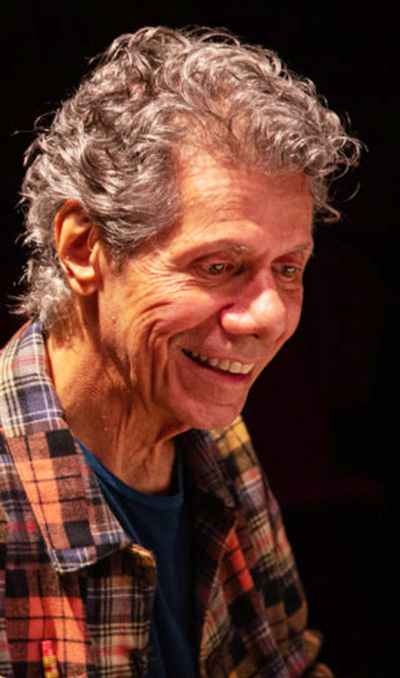by Chus Neira
-You’ve been 60 years on the road, on the stage, playing and recording music. What are your own vision of your career when you look back?
Really I spend no time looking back – except to study the Masters of the Craft – from Mozart and Scarlatti through to Duke Ellington and Miles Davis. The future is now and in the imagination. It’s the part we call “vision”. That’s where I like to live.
How does one sit before a piano every day and manage to keep creative alive playing jazz solos?
This is the joy of living for me – – to create, create and create. Any other way is a bit of death creeping in.
You’re a classical and jazz pianist in many registers. Is there for you a difference between Monk and Mozart?
Art is subjective. Both Monk and Mozart are Masters of the Craft – equal in the heavens of creativity – and they are absolutely different – but the same in their pursuit of musical composition and piano performance.
What interests you of the classical piano?
Everything. The composers mostly; for, without them, there would be no “classical piano”. Piano performances of written compositions are a composer’s art. On the other hand, there would be no classical piano music without the performers. It’s a collaboration.
Do you believe in the evolution / progression within art, and more specifically in music and jazz. Do you believe in the music history as stairs of progress?
I believe that each person alive is potentially artistic and should make his own judgements about art, music and life. Better even to participate in the creation of art – as most people do, in one way or another.
What is your opinion about electronic music and what is being done today in this field within the most avant-garde experiences?
“Electronics” are part of the physical world as are pianos and violins. They are the tools we as creators use to make music. The quality of the music has absolutely nothing to do with the instruments used.
I can’t stop asking about Miles Davis. Today it is very easy to recognize his influence and his legacy. It was the same in those years, playing with him, could you intuit the weight it would have on history?
The “weight” of Miles’ influence was already felt in 1947 when I first heard him on a recording with the Charlie Parker Quintet. Through his life and afterwards, of course, this influence on the music world grew and grew, and is still growing.
What Latin means to you and what Spanish means, besides Paco de Lucía, flamenco?
There is and always was a personal connection I felt to the Spanish speaking world and culture. In certain ways, the Latino world has the definite flavors of my Italian upbringing in the US – – the food, the family, the language etc. But the music of the Latin and African worlds most fit my temperament from an early age. My only lacking is my current inability to speak the Spanish language – – which I learn a little more of each year.
Do you remember the first tiem you heard flamenco and what was your feelings?
Paco De Lucia is my flamenco friend, teacher and mentor. He introduced me to the flamenco family in 1972.
You come to Asturias with Christian McBride and Brian Blade. What can you tell us about the trio and how they will face this concert?
We never know what direction the trio might go each evening. It’s the tradition and spirit of what we do – – therefore impossible to predict or explain. We leave this task up to the listeners.
But we are definitely looking forward to playing in Oviedo!
Big thanks for your time
The best,
Chus Neira
You’re welcome
And thanks for your questions and interest,
Chick

